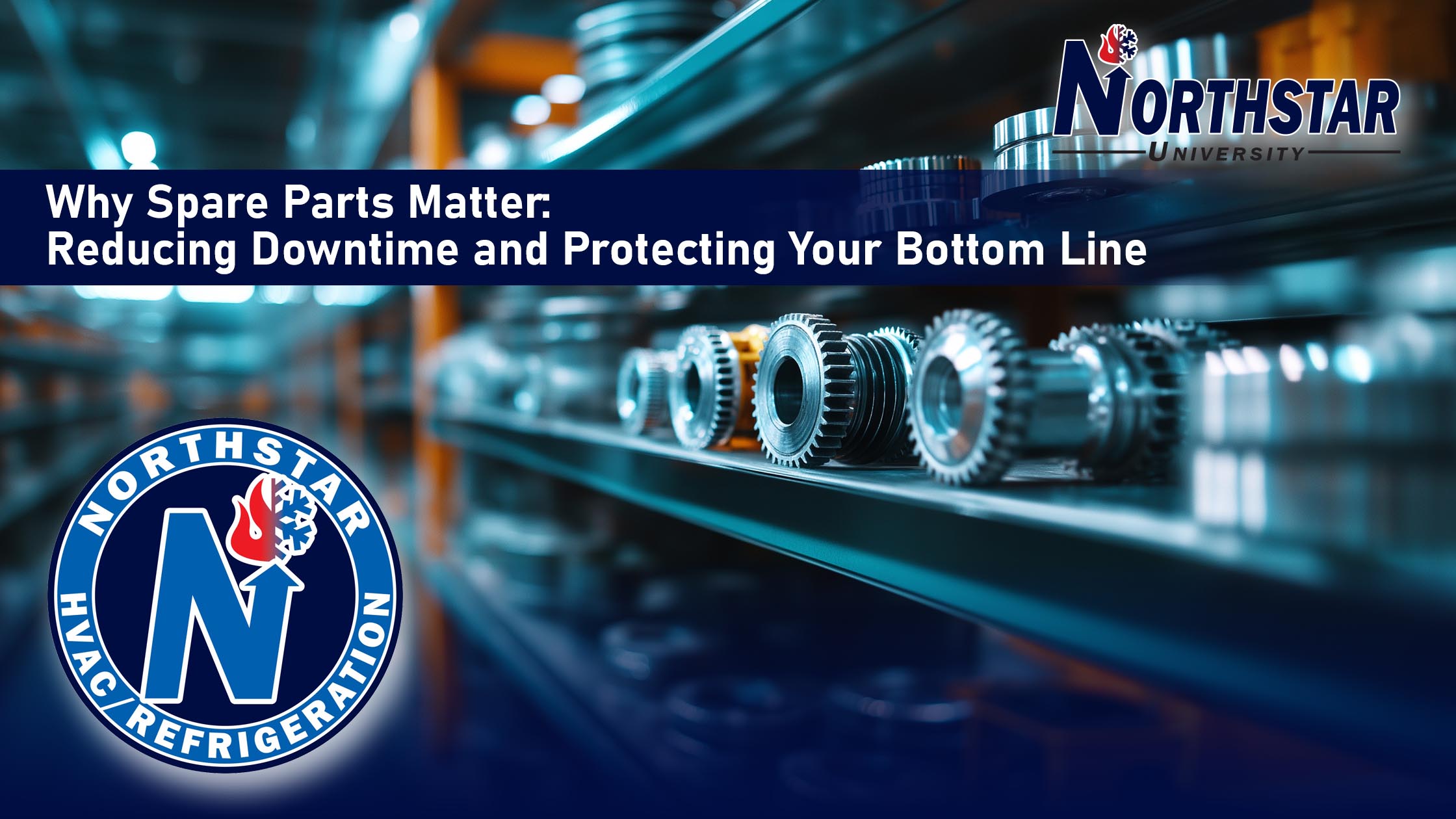Why Spare Parts Matter: Reducing Downtime and Protecting Your Bottom Line
In the world of commercial and industrial HVAC/R, uptime isn’t just a goal — it’s a necessity. Whether you're managing a cold storage facility, an ice rink, a hospital, or a manufacturing plant, your systems are critical to daily operations. When equipment fails, the clock starts ticking —and the cost of unplanned downtime quickly adds up.
That’s where spare parts come in.
The Strategic Value of Spare Parts
Spare parts often live in the shadows — until they’re needed. But in reality, they are a vital component of operational resilience. Having a well-thought-out spare parts inventory is about more than just fixing things fast. It’s about ensuring business continuity, reducing maintenance costs, and minimizing operational risk.
Here's why spare parts matter:
- Downtime Reduction
Equipment failure is inevitable. The question is how long it takes to fix it. Waiting days (or even weeks) for a replacement part to ship can grind your operation to a halt. Stocking essential components drastically cuts repair time.
- Faster Response to Emergencies
When a system goes down outside of normal business hours, waiting for procurement on Monday morning isn't an option. On-site spares allow technicians to make immediate repairs — even after hours.
- Cost Avoidance
Emergency shipping charges, overtime labor, spoiled product, lost revenue — the true cost of unplanned failure goes far beyond the price of a single part.
- Protection from Supply Chain Disruptions
Global supply chain delays and backorders continue to impact HVAC/R components. Having critical spares on hand protects you from uncertain lead times and pricing volatility.
- System Longevity
Being proactive with parts replacement — rather than reactive —helps reduce wear on adjacent system components and extends the overall lifespan of your equipment.
What Parts Should You Stock?
Every system is different, but a few general guidelines apply when building your inventory:
- High-Wear Items: Belts, contactors, fuses, sensors, filters, and gaskets
- Critical System Components: Motors, fans, pressure switches, valves
- Obsolete or Long-Lead Items: Parts that are no longer manufactured or regularly backordered
- Startup/Maintenance Kits: Items commonly needed for seasonal commissioning or annual service
Work with your service provider or in-house maintenance team to build a list of high-priority parts based on your equipment, age, usage patterns, and risk tolerance.
Spare Parts and Risk Management
Think of spare parts like insurance: you're investing in preparedness. The cost of keeping key components on-site pales in comparison to the financial (and reputational) risk of extended downtime. For mission-critical environments — like healthcare, food processing, and datacenters — this is a non-negotiable.
Spare Parts as a Preventive Maintenance Tool
Spare parts also play an important role in planned maintenance. With the right inventory in place, preventive maintenance tasks can be completed faster and more efficiently — with less reliance on just-in-time deliveries.
Instead of waiting for a part to ship, technicians can perform preemptive repairs on the spot, helping you stay ahead of issues and reduce emergency service calls.
In Summary
Spare parts are more than just a backup plan — they’re a proactive investment in your facility’s efficiency, reliability, and resilience. From minimizing downtime and avoiding emergency procurement costs to shielding your operation from supply chain delays and price fluctuations, having the right components on hand is a strategic advantage every facility should consider.
At Northstar Refrigeration, we help our customers identify the critical parts they need to keep on-site and make it easy to order replacements when needed. Whether you're building your inventory or need expert guidance on what to stock, our team is here to support your operation every step of the way.
Ready to strengthen your spare parts strategy? Contact us today at(508) 888-3692 or visit www.northstarhvacr.com to learn more.
Do you have questions about this topic?
📧 Email sales@northstarhvacr.com to discuss predictive maintenance and monitoring options for your business.

